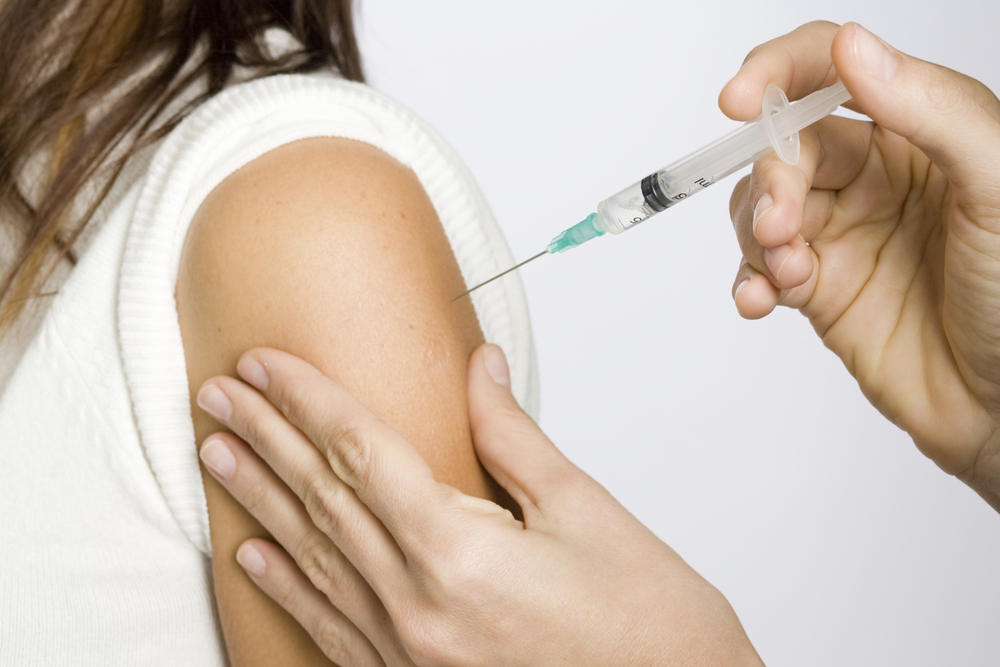Results from a recent survey sponsored by Cancer Research UK and recently presented at the National Cancer Research Institute (NCRI) Cancer Conference in Liverpool revealed that about 20% of teenage women from ethnic minority backgrounds are not being immunized against the human papillomavirus (HPV) — a leading cause of cervical cancer — because they do not believe it necessary.
According to a recent news release, typical reasons included, “Because I am not sexually active and will not be until I get married,” and “My Mum didn’t think it was necessary for me to have the vaccine since I won’t be sleeping around.”
Survey results revealed that 17% of black girls and 22% of Asian girls who hadn’t been immunized against HPV mentioned having no need of the vaccine, for reasons including that they did not expect to be sexually active before marriage. Researchers also found that 20% of unvaccinated girls from black backgrounds were most likely to mention that their parents did not allow them to be vaccinated, without giving them a plausible explanation. The researchers believe that these girls may not have had a conversation with their parents concerning HPV immunization. In the survey, 27% of unvaccinated girls from a white background reported having concerns about side effects of the HPV vaccine.
For the survey, the team provided a questionnaire to school girls age 15-16 years from diverse ethnicities in the London catchment area. Even though the majority of the 2,163 girls surveyed had been completely vaccinated against HPV, 122 were found to be under vaccinated and 233 were found to be unvaccinated.
The HPV vaccine protects against two types of human papillomavirus infection, responsible for 7 in every 10 cases of cervical cancer. The vaccine further protects against two other types of HPV virus associated with genital warts. In the United Kingdom, the vaccine is delivered in two doses to schoolgirls at 12 and 13 years of age.
Dr. Alice Forster, study author and Cancer Research UK researcher at University College London said: “Although around 87 per cent of girls in the UK do have the vaccine it’s concerning to see that some girls from some ethnic minority groups feel they don’t need to have it.”
Every year in the U.K. about 3,010 women receive a diagnosis of cervical cancer, and 930 women die as a consequence of this cancer. HPV vaccine is an effective and safe manner to prevent papilloma infection and decrease the risk for cervical cancer. “Getting to the root of why some girls don’t have the vaccine will help us address these barriers to ensure every girl can receive this protection against the disease,” said Dr. Forster.
Professor Charlie Swanton, NCRI chair and Cancer Research UK scientist at the Francis Crick Institute, added: “These are worrying findings. The HPV vaccine is safe and simple — and stopping HPV infection can help protect against cervical cancer developing. So it’s crucial we find out what’s stopping girls from defending themselves against the disease. Providing more information to both girls and their parents on the safety of the vaccine and addressing the perceived lack of need for it is the first step.”
Harpal Kumar, Cancer Research UK’s chief executive, concluded that, “As someone with an ethnic minority background myself and as a parent, this study highlights a very worrying reason why girls from some minority groups don’t get the HPV vaccine. Gaining insight into the discussions at home and why girls chose not to be vaccinated against HPV is crucial to make sure we provide families with the best information and the confidence to take up the vaccination when invited to do so.”

